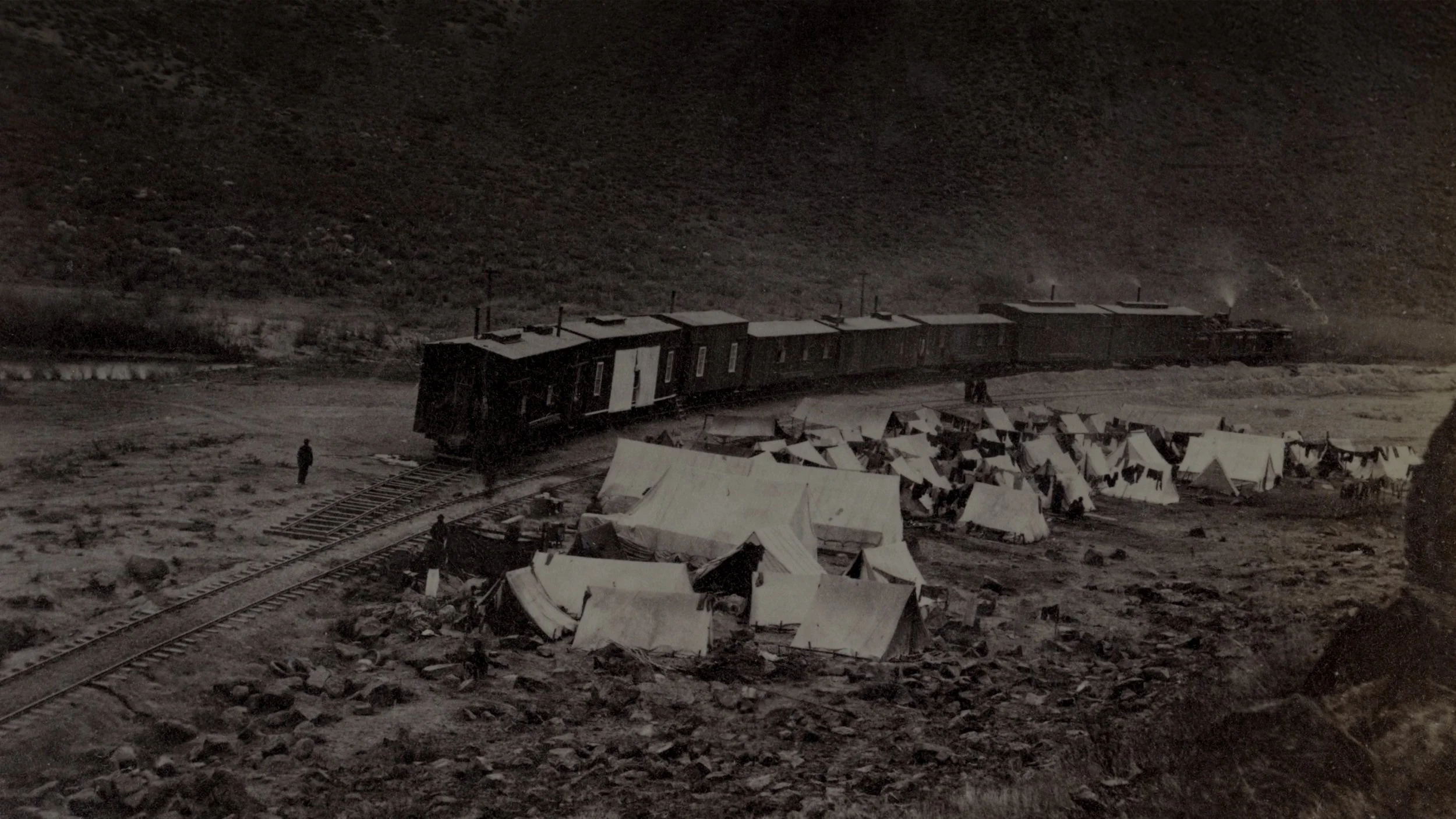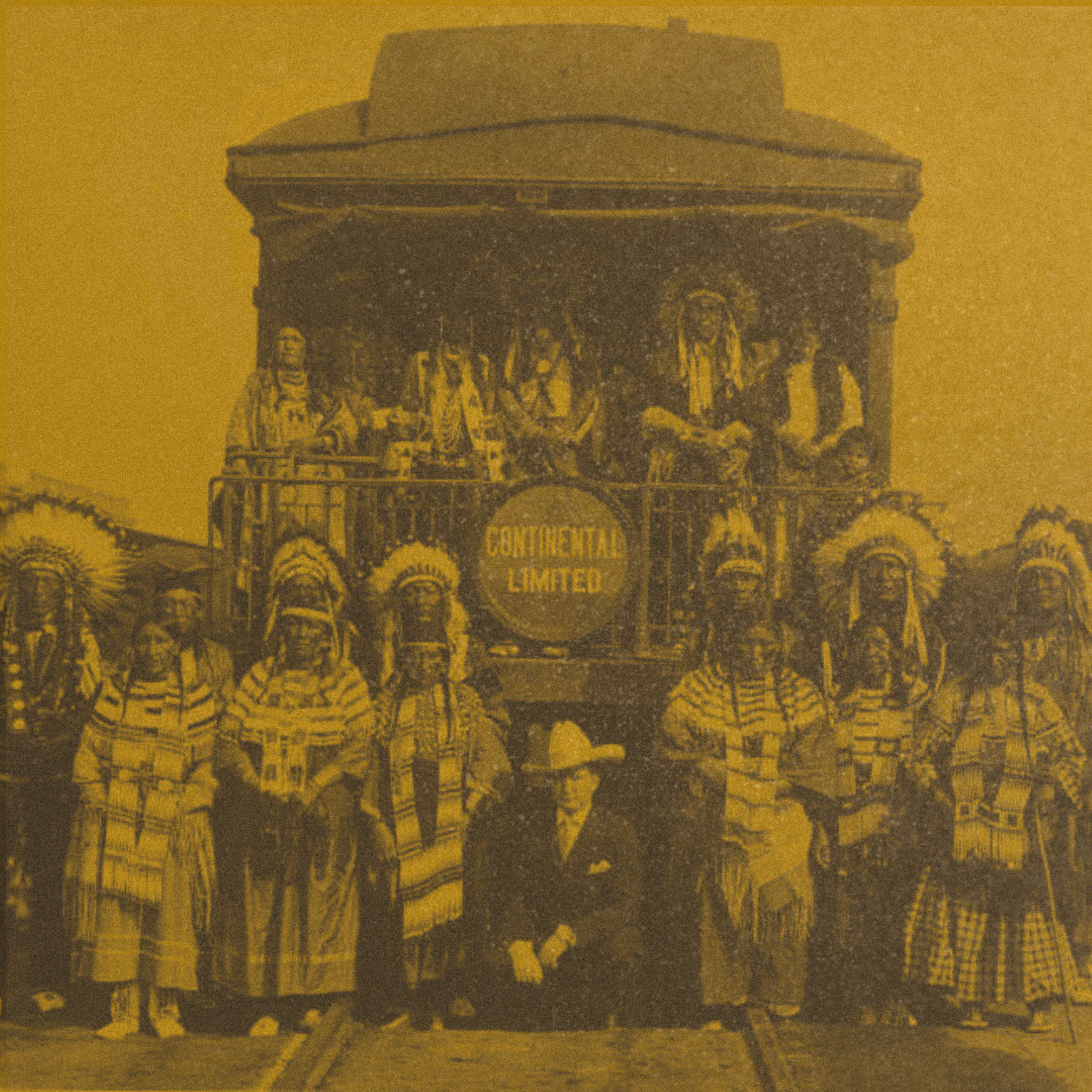AMERICAN RAILROAD:
A LIMITED SERIES PODCAST
Embark on "American Railroad," a five-episode podcast that seeks to right historical wrongs by highlighting the untold stories and unheard voices from the diverse communities that built America’s railway systems. Hosted by Grammy Award-winner and Silkroad Artistic Director Rhiannon Giddens, American Railroad is produced in partnership with PRX.
Each episode weaves music, storytelling, and historical analysis, traveling to railroad communities across the U.S. From the Chinese laborers' crucial role in California's railroads, to the tragic tale of Black railroad workers in North Carolina, and the intersection of music and labor history in New York and Boston, the series brings to light the stories that have long been marginalized. The journey also takes us to the Standing Rock Reservation, showcasing the resilience and musical traditions of the Lakota community. Through intimate interviews with local culture bearers, historians, and Silkroad’s musicians, American Railroad paints a more accurate and inclusive picture of America's history.
Join us as we amplify the voices of those who have long been silenced, celebrate the diversity that built America, and uncover the enduring impact of these buried histories on our society today.
SUBSCRIBE:
LIST OF EPISODES
-
The first stop on the American Railroad podcast is Swannanoa, North Carolina. Host and Silkroad Artistic Director Rhiannon Giddens reveals the origins of the popular Appalachian folk song “Swannanoa Tunnel” and how professors Jeffrey A. Keith and Kevin Kehrberg’s research sparked important conversations about erasure and ownership in Appalachian music. We’ll also hear from Banjo player Tray Wellington about his experience as a Black band leader making a way in a genre not well known for performers who look like him.
-
Next; Hell’s Kitchen, a New York City neighborhood historian Miriam Nyhan describes as transformed by immigration and expansion of the state’s railroad boom. Despite tensions between Black and Irish railroad workers, living and laboring side-by side created a distinctly American sound. Musicians Lenwood “Leni” Sloan, and Silkroad Ensemble member Maeve Gilchrist use music to capture the energy and urgency of the time in their workshop with New York’s Irish Arts Center.
-
Historians Karen Ishizuka and Roland Hsu detail the contributions of Japanese and Chinese railroad laborers in a country that leveraged xenophobic laws in attempts to eradicate their cultural heritages. Haruka Fujii, Associate Artistic Director of the Silkroad Ensemble, walks us through ‘Tamping Song’—an ode to ‘Tamping Ondo,’ a Japanese work song that captures the spirit of laborers dedicated to the rail.
-
Centuries before the Dakota Access Pipeline snaked underneath Lakota-Sioux land, the transcontinental railroad barreled through it. Standing Rock Sioux Reservation leaders Dave Archambault Sr. and II discuss how the economic and social expansion of America often comes at the expense of indigenous people. We’ll also hear from musician and Silkroad collaborator Pura Fé about her time in Standing Rock for the #NoDAPL occupation and Ethnomusicologist Everardo “Ever” Reyes take on how songs like Fé, “Mahk Jćhi,” are a part of a long tradition of indigenous protest music.
-
At the turn of the 20th century, Black men and women worked as Pullman porters and maids – serving predominantly white travelers while reinforcing a hierarchy reminiscent of the Antebellum South. Wives, sisters, and daughters largely made up the Ladies' Auxiliary of the Brotherhood of Sleeping Car Porters – and served as their mouthpiece – keeping the economic, social, domestic, and political interests of railroad workers at the center of their activism. Musician and Silkroad collaborator Cécile McLorin Salvant’s song, “Have You Seen My Man?” gives voice to the legions of Black women who awaited the safe return of their loved ones aboard the trains, while they took care of home in communities like Boston’s South End neighborhood.
ABOUT THE HOST
Silkroad’s Artistic Director Rhiannon Giddens has made a singular, iconic career out of stretching her brand of folk music, with its miles-deep historical roots and contemporary sensibilities, into just about every field imaginable. A two-time GRAMMY Award and Pulitzer Prize-winning singer and instrumentalist, MacArthur “Genius” grant recipient, and composer of opera, ballet, and film, Giddens has centered her work around the mission of lifting up people whose contributions to American musical history have previously been overlooked or erased, and advocating for a more accurate understanding of the country’s musical origins through art.
As Pitchfork once said, “few artists are so fearless and so ravenous in their exploration”—a journey that has led to NPR naming her one of its 25 Most Influential Women Musicians of the 21st Century and to American Songwriter calling her “one of the most important musical minds currently walking the planet.”
ABOUT PRX
Celebrating more than 20 years as a nonprofit public media company, PRX works in partnership with leading independent creators and organizations to bring meaningful audio storytelling into millions of listeners’ lives. PRX is one of the world’s top podcast publishers and public radio distributors, helping to shape a vibrant future for creative and journalistic audio. Shows from PRX have received recognition from the Peabody Awards, the Tribeca Festival, the International Documentary Association, the National Magazine Awards, and the Pulitzer Prizes.
The American Railroad podcast is made with PRX Productions, PRX's team of acclaimed audio producers.
Special thanks to the following for making possible this podcast:
The Heavin-Weinman Family
The ‘Quin House Impact Fund

















